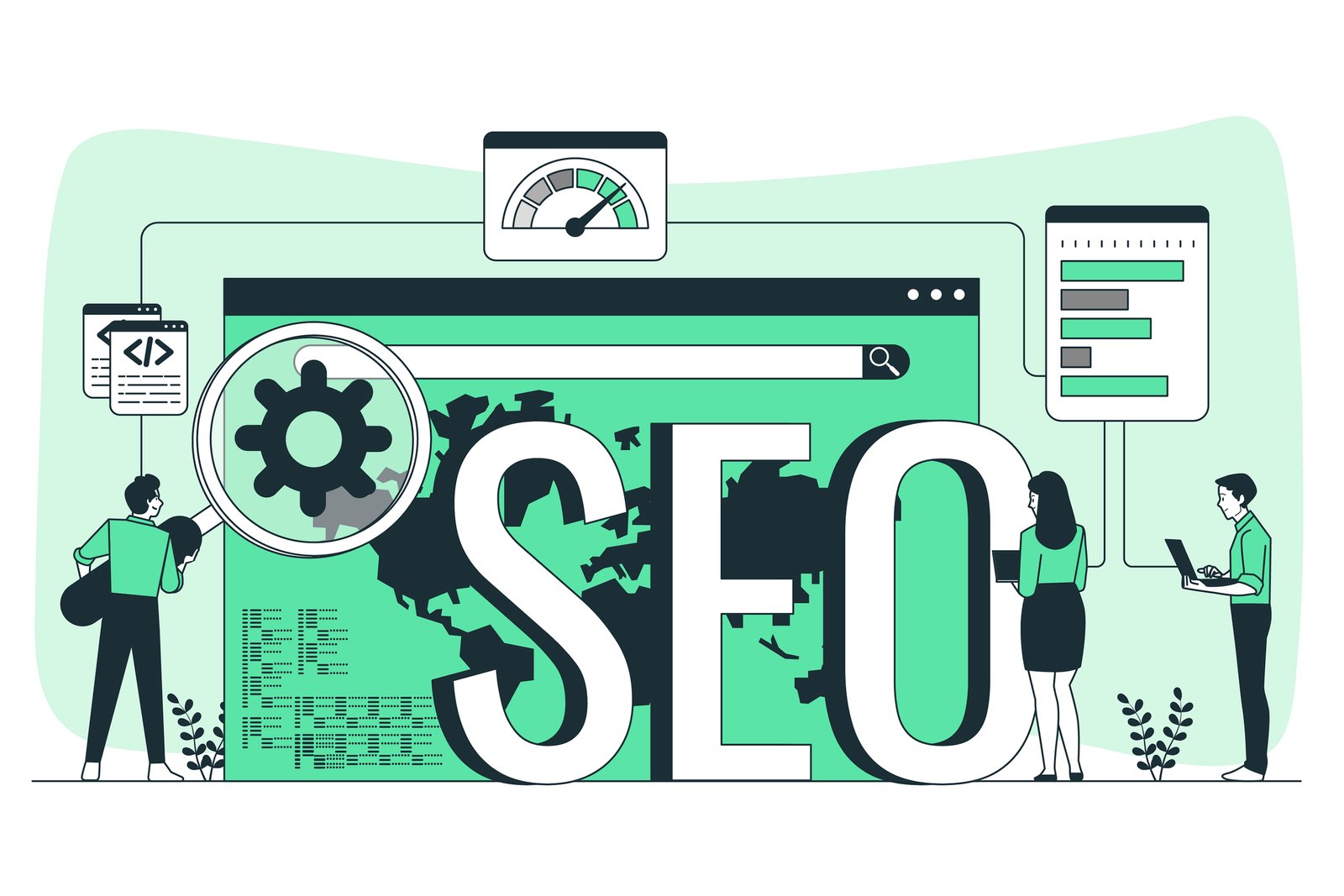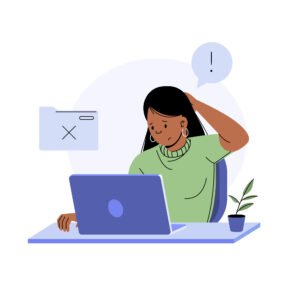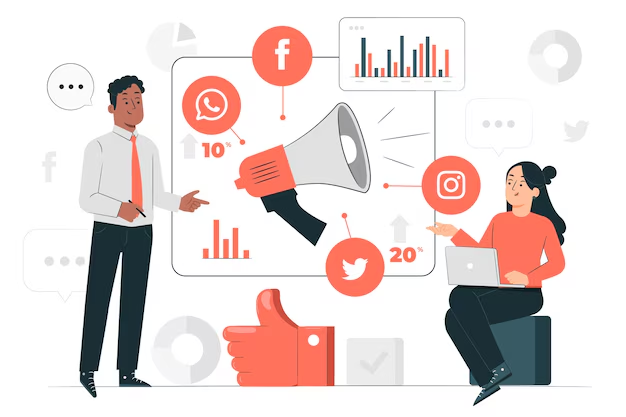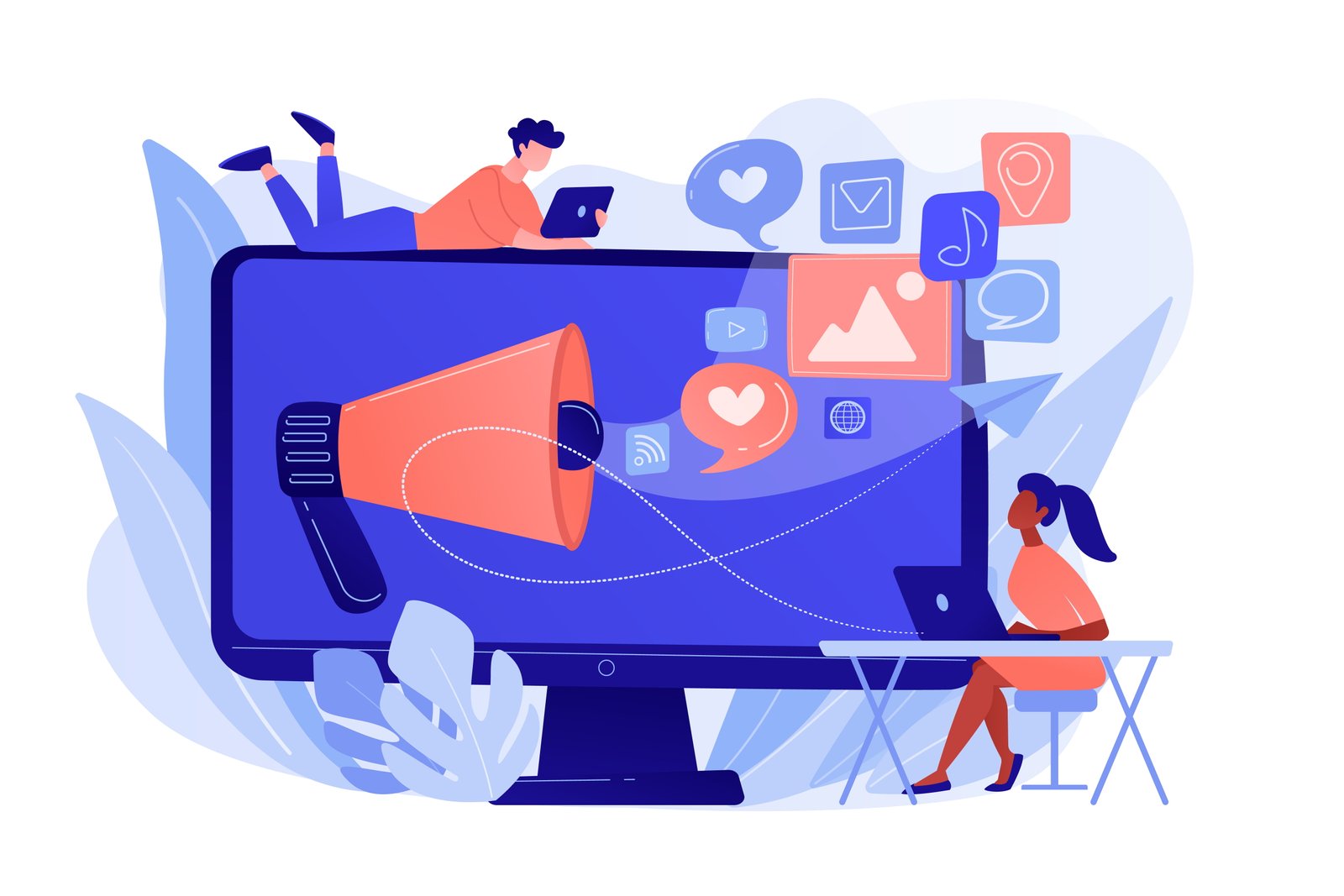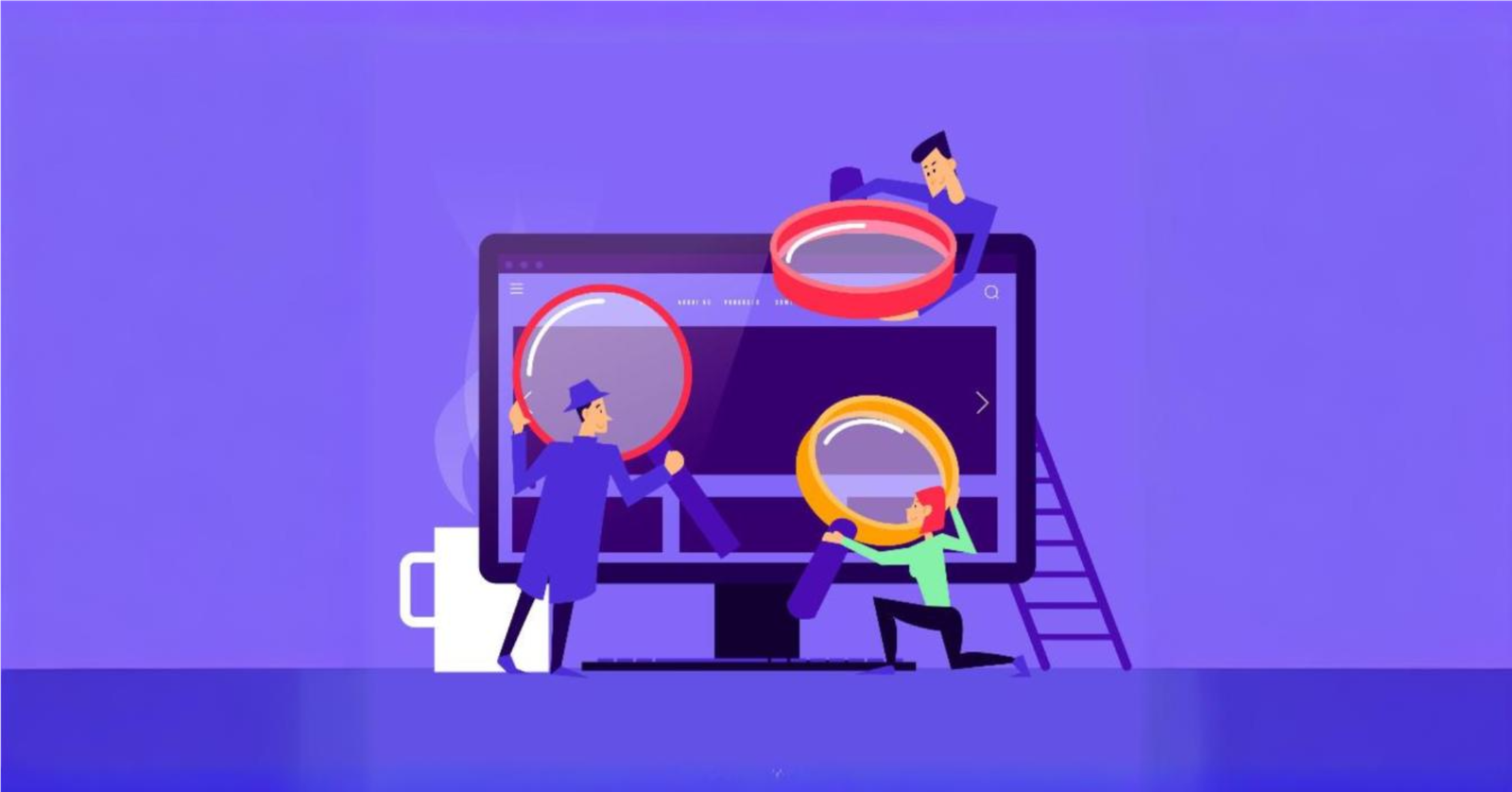Search Engine Optimization, abbreviated as SEO, helps a website to pop up when someone goes online searching for something related to that given business. That is, however, not a valid explanation for a person who might have never heard of SEO.
Think about the internet as a giant library, with every webpage in that library being a book. So when someone wants to get information out of it, they approach the librarian-in this case, Google. The task of the librarian is to find the very helpful books and put them into the hands of the patron.
Thus, SEO is to ensure that your book is easy for the librarian to locate and understand. You want your book to be the one the librarian recommends when a question comes up related to your book contents.
Why Does SEO Matter?
You may ask yourself, “What is it about SEO that makes me worry?” Now, ask yourself how you actually use the internet. If you want to find something, you probably type it into Google or any other search engine. Most users choose from the top few results they get.
If your website’s not appearing up in those spots, you’re losing a ton of potential visitors. And if you’re doing business, those could be potential customers.
Good SEO can help:
- Get more people to visit your website.
- Bring in people who are actually interested in what you offer.
- Make your business look more trustworthy.
How Does SEO Work According to Google?
Search Engine Optimization Weegy, or SEO Weegy, is about helping people find what they want online. The Google SEO starter guide is simple: make sure that users and searching engines understand your website easily. But exactly how does it do that?
It all starts with Google sending out automated bots to browse through websites. The crawlers or spiders can be perceived as tiny librarians that scan through the internet. They “read” pages, follow links, and collect information about each website they visit. This process is referred to as crawling.
Upon collating enough data, these crawlers send this information to a huge database called the index. It is like a giant library that contains everything these bots manage to find on the internet. When someone makes a search for something, Google searches through its index, not the entire web, to find the most relevant search results.
But how does Google choose to display the first hits? This is where ranking takes over Google uses a patented algorithm that determines which pages are most helpful and relevant to a user’s search. The algorithm checks for things like words on the page (keywords), how well a site or piece of content is made, and how easy a site is to actually use.
Of course, elements of the user experience also weigh heavily in SEO. Google prefers sites that are quick and responsive on mobile devices, easy to navigate, and pleasing to the eye. If your site is slow and clumsy to use, it is highly likely to get lower rankings, even with great content.
In other words, SEO is all about ensuring your website is useful, usable, and designed in a way that search engines can read it. This is where it becomes complicated: SEO is attempted once but needs constant polishing to keep pace with Google’s dynamic changes to retain their sites at the eye level of the users.
How Search Engines Work
Understanding SEO is helped by a modicum of knowledge about how search engines function. They use special programs (often called spiders or crawlers) that look at websites all over the Internet. These programs try to find out what every website is about.
When a user searches for something, the search engine looks through its entire database of known sites and tries to present, in order, those that it considers the most helpful ones. It considers such things as:
- Does the website talk about what the person is searching for?
- Is the information on the website trustworthy and high-quality?
- Is the website easy to use?
Basic SEO Techniques
Now that we know why SEO is important and how search engines work, let’s talk about some basic ways to improve your website’s SEO:
Use good keywords
Keywords are things people search for on the Internet, words or phrases plugged into a search engine. You basically want to use words on your site that people typically search. Beware, though, not to overdo it! Stuffing too many keywords renders your writing weird and unnatural sounding.
Create helpful content
Contrary to what you may believe, big-time search engines favor only those sites where useful information can be found. Create some articles, videos, or similar objects that intend to genuinely help people. }That’s what search engines like: the websites that offer precisely what visitors want.
Make Your Website Easy to Use
You see, when your site is hard to browse or loads a little on the slower side, people may just bounce away in a quick snap. The search engines notice this and thus may not display your site often. Therefore, you must ensure that your site functions well, both in desktop and mobile modes.

Get Other Websites to Link to Yours
For every great keyword you manage to score, new links from valuable sources can only work as votes. Search engines scan these links and ascertain that, if others are linking to it, then it must sure be a great site.
Use good titles and descriptions.
The title of each page in your site should be short, clear, and descriptive. Within these pages, a short summary for that page is necessary-a description that is called a meta description. Descriptions such as these help to inform both the search engines and visitors as to the general contents of your page.
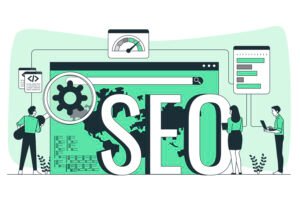
Different Types of SEO
As you learn more about SEO, you’ll hear about different types:
On-page SEO: Everything is done on the individual pages of your website with the one goal of maximizing each and every page. This would include good keyword use and helpful content.
Off-Page SEO: This is concerned with how other sites view your site, and a big part of this is getting links from other sites.
Technical SEO: This involves the nitty-gritty details that help search engines to better interpret your website. Things like speeding the site up and ensuring proper display on mobile devices.
Local SEO: If you serve a specific area, local SEO is about making sure that when people are in your area searching for your services, you show up.

SEO VS Paid Traffic
SEO and paid traffic both try to bring visitors to your website but work in very different ways. SEO, or search engine optimization, is aimed to organically help your site to be visible over time. This is done by optimizing your site for search engine rankings, generating sustained traffic without incurring further costs per click. Paid traffic, on the other hand, gives you immediate visibility either through Google Ads that puts your website at the top of search results or through social media advertising that keeps your website in the feeds; however, continuous investment in traffic is necessary. The SEO process is a lengthy process to build credibility and trust sinking in slowly while paid traffic permits fast acquisition of results for as long as you continue paying for it.
SEO VS SEM
SEO Weegy or Search Engine Optimization works with Search Engine Marketing in rendering websites visible on search engines. SEO is intended to promote a particular site and its content, so that it can be viewed as higher in search ranks, using keywords and overall user experience for such ends. Whereas SEM is mostly about paid programs such as PPC( pay-per-click) where companies are bidding a paid value for the ad placements at the top listing, while SEO is slow but free, SEM is fast but more costly.
The Importance of E-A-T in SEO
E-A-T is emerging as a significant ranking factor in Google’s rankings. It stands for expertise, authority, and trustworthiness. Here’s what it means:
Expertise: Do you know what you’re talking about? To back that up, are there any credentials or evidence that you have experience in this area?
Authoritativeness: Are you regarded by others as an expert in the field? Are there many reputable websites linking to you or mentioning you as a source?
Trustworthiness: Is your website secure? Do you have accurate up-to-date information that can be easily verified by others? Do you clarify who you are and how you run your business?
To improve your E-A-T:
- Share your credentials or experience.
- Get mentions or links from other respected websites in your field.
- Keep your content accurate and up-to-date.
- Make sure your website is secure (look for the little padlock icon in the address bar).
Common SEO Mistakes to Avoid
As you work on your SEO, be careful not to fall into these common traps:
- Keyword Stuffing: Don’t overuse keywords. It looks spammy and can get you in trouble with search engines.
- Ignoring Mobile Users: More and more people use phones to browse the internet. Make sure your site works well on small screens.
- Slow loading times: If your website takes too long to load, both visitors and search engines will get frustrated.
- Duplicate Content: Search engines may become confused if the same content appears on several pages. Make sure every page has something special to offer.
- Buying Links: It might be tempting to pay for links from other sites, but this can backfire. Focus on earning links naturally.

How Can you Measure SEO Success
How can you determine the success of your SEO campaigns? Here are some things to keep an eye on:
- Rankings: Are you showing up higher in search results for important keywords?
- Traffic: Are more people visiting your website from search engines?
- Bounce Rate: Are people staying on your site or leaving right away?
- Conversion Rate: Are visitors doing what you want them to do (like buying something or signing up for a newsletter)?
Tools like Google Analytics and Google Search Console can help you track these things.
Latest SEO Update
With the Google Core Update of January 2025, further refinements have taken place in the manner of ranking websites. This update highlights the continuing commitment from Google to emphasize user experience and authoritative content. Original, well-researched, and truly helpful information on websites will definitely take precedence over web pages that have optimized Core Web Vitals-like page speed, interactivity, and visual stability. Besides that, mobile responsiveness and accessibility remain very important. A site with either or both issues suffers a ranking blow for placement on a search engine results page. The need to stay ahead demands the same balance between content quality and technical SEO for online marketing, more than before.
Best SEO Tools
SEO tools make a significant difference when it comes to enhancing your website’s chances of getting searched, tracking performance, keywords, and search engine optimization. Popular among them are Google Analytics for tracking site traffic and behavior, Ahrefs for backlink analysis, and SEMrush for keyword research and competitor insights. Yoast SEO is a nice plugin for optimizing content directly in WordPress, while Moz provides a health report on the SEO status of the site. These tools can give you a pretty clear picture of what works and what you need to concentrate on.
The Future of SEO
SEO is always changing as search engines get smarter and people’s search habits change. Here are some trends to watch:
- Voice Search: More people are using voice assistants like Siri or Alexa to search. This means optimizing for more natural, conversational phrases.
- Mobile-First: Google now determines a website’s ranking mostly based on its mobile version.
- User Experience: Search engines are paying more attention to how easy your site is to use and how helpful it is.
- Video Content: People love videos, and search engines are getting better at understanding them.
- AI and Machine Learning: Search engines are using artificial intelligence to better understand websites and user intent.
The History of SEO
The beginning of Search Engine Optimization (SEO) dates back to the mid-1990s when first Yahoo! and AltaVista began surfacing on the Internet. Early SEO was all about keyword stuffing and some rudimentary HTML tweaks to rank high on these search engines. It was in 1998 that Google changed the landscape of search by introducing an algorithm called PageRank to judge a website that based itself on their backlinks and relevance. This turned the focus on quality content.
During the 2000s, Google continually updated algorithms with changes such as Panda in 2011, designed to penalize low-quality content and Penguin in 2012 set out to eliminate spammy links. The focus in SEO shifted from technical tricks to user experience, great content, and link-building techniques applied ethically.
Beginning in the 2010s, mobile optimization, voice search, and intent-driven SEO strategies started taking a front row. With the January 2025 Core Update, it continues along that trajectory with an emphasis on the depth of content, Core Web Vitals, and user experience. Google now lays emphasis on websites providing high-quality, structured content that can credibly be a contributor and work across every device seamlessly. SEO today has turned out to be a full-fledged digital strategy that requires perfect balance amongst technical SEO, engaging content, and great user experience to achieve a sustained win.
Wrapping It Up
SEO might seem a touch daunting, but remember: at its core, it’s simply about making your site helpful for the audience you wish to reach. The moment you set your focus on great content backed by superior user experience, you know you’re on the right track.
Also, SEO is a long-term game. You most likely will not see immediate results, but given good work and patience, your website will A climb- interactively these days-with the search engines over time.
Just keep learning, keep adjusting your website, and very importantly, keep asking yourself what your visitors really need. That’s the real secret to mastering SEO.
Keep in mind that SEO actually isn’t about tricking search engines. It’s about giving your visitors real value on your site. When you do that, your visitors and search engines will appreciate you more.
Whether you’ve got a little local company, a big e-commerce site, or even just a personal blog, SEO can help you reach more of the right people. SEO is an effective weapon in a digital world, and now you know how to wield it.
Frequently Asked Questions
What is SEO?
SEO stands for Search Engine Optimization, which refers to all the strategies used to improve the visibility of any website in search engines, like Google. Basically, SEO deals with indexing a website through the improvement of website attributes-cum-content, structure, keywords-so as to make its way to the top or middle of the search list for easy access by users.
2. How does SEO work?
The search engine optimization works by optimizing your website based on the algorithms that search engines use. These algorithms will evaluate the content, performance of the website, backlinks, and user experience-all in evaluating the relevance and quality of your site against the search query.
3. Why is SEO important?
SEO is very important because it provides free traffic to a website-without resorting to paid advertisements-which consequently translates to more visibility and awareness of the brand, thus leading to an increase in sales or conversion.
4. What are keywords in SEO?
Keywords are specific terms or phrases typed into a search engine by users. In SEO, the idea is to research and apply appropriate keywords in the website content that potential visitors are searching for, which helps increase chances of being listed as high up in search results as possible.
5. How long does it take to see results from SEO?
Given that SEO is a strategic sustained process, the waiting period may range from 3 to 6 months for noticeable change in search rankings, depending on competition and optimization done on your website.
6. Does SEO differ between mobile and desktop?
Yes, SEO does vary attune to mobile or regular desktop. Mobile-friendly pages are becoming mainstream since most users rely on mobile devices to perform search functions. Mobile optimization, therefore, includes everything from page loading rates to some responsiveness by design, to mention a few-which strongly impact search rankings.
7. Should I do my SEO?
Yes, you can itself manage the SEO quite well if you know keyword research, on-page optimization, and link building techniques. Professional assistance can speed up the process as well as improve the optimization quality.
8. What are backlinks in SEO?
Backlinks are the hyperlinks connecting your site with every other site. Such linking is cited as an endorsement by search engines. Consequently, the higher quality backlinks your site has, the better chances it has to rank well.
9. What is local SEO?
Local SEO involves optimizing the website according to the specified regional location with the intent to have businesses show in searches when users are searching for services nearby thus, bringing visibility to local customers.
10. What’s the difference between organic and paid search?
Organic search refers to the results you obtain using a search engine optimization approach that enables your website to achieve a natural ranking without paying for ads. While the paid search normally uses a pay-per-click mode via advertisements which make your website appear right at the top of the search results.

